Strictly Personal
How many voters are there in Nigeria? By Chidi Odinkalu
Published
1 year agoon
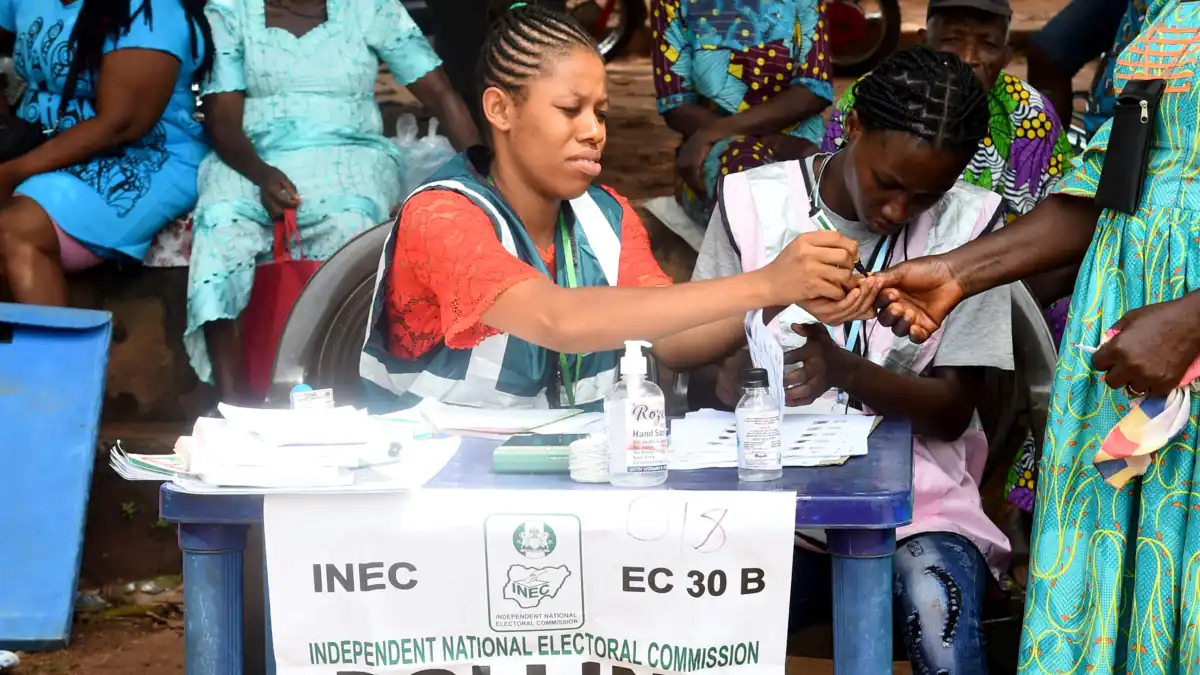
Numeracy is a Nigerian problem but electoral democracy is about counting numbers. Nigerians will vote to elect a president and national legislators on 25 February. On 11 March, they will return to elect state legislators in 36 states and governors in 28. The numbers that will frame all these contests are now settled. They deserve close attention.
In all, 18 political parties will field a total of 15,307 candidates, including 1,553 women for 1,491 offices, including the presidency; 28 governorship offices; 109 senators; 360 in the House of Representatives members; and 993 seats in state houses of assembly.
Voting will take place in 176,846 polling units nationwide, located in 8,809 wards or Registration Areas in 774 local government areas. The Independent National Electoral Commission (INEC) says it has acquired at least 194,464 Bimodal Voter Accreditation System (BVAS) machines for the election to be managed by over 1.4 million ad-hoc officials.
By far the most important figure, however, is the number of registered voters. When Nigeria last voted in a general election in 2019, there were 84,004,084 voters on the electoral register. Through its Continuous Voter Registration (CVR), INEC says it captured another 12,298,944 since then. When it ran these entries through its Automatic Biometric Identification System, (ABIS), INEC discovered that 2,780,756 (22.6%) were ineligible or invalid. So, the register of voters in Nigeria has grown by 9,518,188 or 11.33% to 93,522,272 since 2019.
The names on the register notionally represent the people to ultimately decide who becomes Nigeria’s next president. This is why the register deserves attention. There is another reason the number of voters matters. Complaints about “voter apathy” in Nigeria persist. The numbers and patterns seem to bear this out. In 1999, turnout was 52.3%. Officially, it grew to 69% in 2003; and it has fallen, since then, to 57.5% in 2007; 53.7% in 2011; 43.7% in 2015; and a historic low of 34.8% in 2019.
Nigeria has always had a problem with numbers, especially of people and of votes. To be fair, voting numbers can be problematic everywhere because they are ambulatory. People are not static: they die by the second, relocate, or migrate. The register of voters does not automatically change because a person whose name is on it has died or moved. So, every voters’ register, at best, represents a snapshot in time.
In 20 years from 1999 to 2019, Nigeria’s population rose by 71% but the population of voters rose by only 50%. With the latest numbers announced by INEC, Nigeria’s register of voters has grown by 36,522,272 since 1999 or 64.07%, a deficit of 25.83% when compared with the increase in Nigeria’s population over the same period. It is possible to speculate about what may explain this significant deficit in growth patterns between the general population and register of voters.
However, there are many curious things about voting numbers in Nigeria. One, they are an island entirely unto themselves, with no rational relationship to wider trends in the population. Nigeria’s pattern of supposedly precipitous collapse in voter turnout, for instance, is inversely proportional to the growth in Nigeria’s baseline population.
In 1999, Nigeria’s population was estimated to be 115,766,000. By the time the country voted in 2019, it had risen to 199,039,000, a growth of 83,273,000 or 71%. When INEC announced the number of voters on the register for the 2023 election on 11 January 2022, the population of Nigeria was estimated to be over 219,864,000. In other words, since 1999, Nigeria’s population has grown by over 104,098,000, or 89.92%.
By contrast, in 1999, Nigeria had 57 million registered voters. This rose by 5.26% or three million to 60 million in 2003 and then by 1.67% or one million to 61 million in 2007. By 2011, the number of registered voters had climbed by over 12 million to 73.53 million or 20.5%, representing an average yearly growth rate of nearly 5.12%, where previously it had grown by 1.31% in 1999 to 2003 and 0.42% between 2003 and 2007. By 2015, the population of registered voters had fallen to 68.83 million, a deficit of 4.7 million voters or 6.83%, representing an annualised rate of reversal of 1.71%. Yet, over the same period, Nigeria, a country with a median age of just under 18 years, had grown in population from an estimated 162.9 million to 181.2 million, an increase of 15.174 million or 11.23%, representing an annual growth rate of 2.8%.
These numbers and the patterns they reveal do not lend themselves to easy explanation. However, as the Justice Uwais presidential committee on electoral reform pointed out in its 2008 report, much of what passed for electoral numbers in Nigeria before 2011 was voodoo. Just to illustrate this point, the INEC does not have a breakdown of official results for the 2007 presidential elections but there are turnout figures for that election.
In 20 years from 1999 to 2019, Nigeria’s population rose by 71% but the population of voters rose by only 50%. With the latest numbers announced by INEC, Nigeria’s register of voters has grown by 36,522,272 since 1999 or 64.07%, a deficit of 25.83% when compared with the increase in Nigeria’s population over the same period. It is possible to speculate about what may explain this significant deficit in growth patterns between the general population and register of voters. Rational factors such as internal migration; agency dysfunctions in INEC, civic inertia or failure to register, or high transaction costs may explain some of this. But there remain worrying patterns that are not easily accounted for by these factors.
This leads to a second issue: Nigeria’s register of voters has always had invalid voters. The current register of voters in Nigeria dates back to November 2010 when the Attahiru Jega-led INEC set about establishing a credible register of voters for the country. The Commission had limited time to authenticate the raw data before the 2011 general election. When the Automatic Fingerprint Identification System (AFIS) finished its work on the 2011 register nearly four years later, INEC invalidated 4.7 million entries, which reduced the number of registered voters from 73.53% in 2011 to 68.83% in 2015 but not before these invalid 4.7 million were eligible to vote in 2011.
Over three election cycles since 2011, the number liable to be expunged from Nigeria’s electoral roll could be somewhere in the region of about 20 million. Separately, at the end of 2021, the Internal Displacement Monitoring Centre (IDMC) reported that Nigeria had at least 3.2 million people in internal displacement. The United Nations High Commissioner for Refugees added that there are at least another 343,000 Nigerian refugees outside the country.
Perhaps the biggest worry of all is with dead voters. At the beginning of 2022, the INEC explained that it cannot expunge dead voters from the register because “the country does not have reliable data of births and deaths and the commission cannot engage in arbitrary removal of the names of individuals it suspects are deceased.”
The third issue, therefore, is evidently that the number of voters on the register is grossly over-stated. In the explanation of the INEC, Nigeria’s register of voters is the classic Hotel California: it is “programmed to receive” and, for anyone with their name on it, the message is that “you can check out any time you like but you can never leave.” The implications of this for electoral integrity are staggering.
Nigerian law only allows adults to vote. Over the decade between 2010 to 2020, Nigeria’s adult mortality rate has ranged between 389.09 and 357.9 per 1,000 for men; and 359.8 to 318 per 1,000 for women. In 2020, adult mortality rate in Nigeria was estimated at 34.25 per 100 of population yearly. Applied to the 2019 register and adjusted down to account for the fact that adult mortality rate is counted from 16 years, two years less than the voting age, the number liable to be removed from the electoral roll would be well over six million in any election cycle.
Over three election cycles since 2011, the number liable to be expunged from Nigeria’s electoral roll could be somewhere in the region of about 20 million. Separately, at the end of 2021, the Internal Displacement Monitoring Centre (IDMC) reported that Nigeria had at least 3.2 million people in internal displacement. The United Nations High Commissioner for Refugees added that there are at least another 343,000 Nigerian refugees outside the country. Admittedly not all of these are adults of voting age.
However, when you look at the numbers on Nigeria’s register of voters and account for the fact that the baseline data goes back to 2011, there is a high likelihood that up to about 25% of the register are dead, dud, or displaced. When folks complain about “voter apathy” they miss one important point: Nigeria guarantees the dead a right to vote. That is antecedent to any talk of “voter apathy”.
Chidi Anselm Odinkalu, a lawyer and teacher, can be reached at chidi.odinkalu@tufts.edu.

You may like
Strictly Personal
This Sudan war is too senseless; time we ended it, By Tee Ngugi
Published
4 hours agoon
April 28, 2024
Why are the Sudanese Armed Forces (SAF) and the paramilitary Rapid Support Forces (RPF) engaged in a vicious struggle? It is not that they have ideological, religious or cultural differences.
Not that people should fight because of these kinds of differences, but we live in a world where social constructions often lead to war and genocide. It is not that either side is fighting to protect democracy. Both sides were instruments of the rapacious dictatorship of Omar el-Bashir, who was overthrown in 2019.
Both are linked to the massacres in Darfur during Bashir’s rule that led to his indictment by the International Criminal Court for crimes against humanity. They both stood by as ordinary, unarmed people took to the streets and forced the removal of the Bashir regime.
None of these entities now fighting to the last Sudanese citizen has any moral authority or constitutional legitimacy to claim power. They both should have been disbanded or fundamentally reformed after the ouster of Bashir.
The SAF and the RSF are fighting to take over power and resources and continue the repression and plunder of the regime they had supported for so long. And, as you can see from news broadcasts, they are both well-versed in violence and plunder.
Since the fighting began in 2023, both sides have been accused of massacres that have left more than 30,000 people dead. Their fighting has displaced close to 10 million people. Their scramble for power has created Sudan’s worst hunger crisis in decades. Millions of refugees have fled into Chad, Ethiopia and South Sudan.
The three countries are dubious places of refuge. Chad is a poor country because of misrule. It also experiences jihadist violence. Ethiopia is still simmering with tensions after a deadly inter-ethnic war.
And South Sudan has never recovered from a deadly ethnic competition for power and resources. African refugees fleeing to countries from which refugees recently fled or continue to flee sums up Africa’s unending crisis of governance.
Africa will continue to suffer these kinds of power struggles, state failure and breakdown of constitutional order until we take strengthening and depersonalising our institutions as a life and death issue. These institutions anchor constitutional order and democratic process.
Strong independent institutions would ensure the continuity of the constitutional order after the president leaves office. As it is, presidents systematically weaken institutions by putting sycophants and incompetent morons in charge. Thus when he leaves office by way of death, ouster or retirement, there is institutional collapse leading to chaos, power struggles and violence. The African Union pretends crises such as the one in Sudan are unfortunate abnormally. However, they are systemic and predictable. Corrupt dictatorships end in chaos and violence.
Tee Ngugi is a Nairobi-based political commentator.
Strictly Personal
Air Peace, capitalism and national interest, By Dakuku Peterside
Published
2 weeks agoon
April 16, 2024
Nigerian corporate influence and that of the West continue to collide. The rationale is straightforward: whereas corporate activity in Europe and America is part of their larger local and foreign policy engagement, privately owned enterprises in Nigeria or commercial interests are not part of Nigeria’s foreign policy ecosystem, neither is there a strong culture of government support for privately owned enterprises’ expansion locally and internationally.
The relationship between Nigerian businesses and foreign policy is important to the national interest. When backing domestic Nigerian companies to compete on a worldwide scale, the government should see it as a lever to drive foreign policy, and national strategic interest, promote trade, enhance national security considerations, and minimize distortion in the domestic market as the foreign airlines were doing, boost GDP, create employment opportunities, and optimize corporate returns for the firms.
Admitted nations do not always interfere directly in their companies’ business and commercial dealings, and there are always exceptions. I can cite two areas of exception: military sales by companies because of their strategic implications and are, therefore, part of foreign and diplomatic policy and processes. The second is where the products or routes of a company have implications for foreign policy. Air Peace falls into the second category in the Lagos – London route.
Two events demonstrate an emerging trend that, if not checked, will disincentivize Nigerian firms from competing in the global marketplace. There are other notable examples, but I am using these two examples because they are very recent and ongoing, and they are typological representations of the need for Nigerian government backing and support for local companies that are playing in a very competitive international market dominated by big foreign companies whose governments are using all forms of foreign policies and diplomacy to support and sustain.
The first is Air Peace. It is the only Nigerian-owned aviation company playing globally and checkmating the dominance of foreign airlines. The most recent advance is the commencement of flights on the Lagos – London route. In Nigeria, foreign airlines are well-established and accustomed to a lack of rivalry, yet a free-market economy depends on the existence of competition. Nigeria has significantly larger airline profits per passenger than other comparable African nations. Insufficient competition has resulted in high ticket costs and poor service quality. It is precisely this jinx that Air Peace is attempting to break.
On March 30, 2024, Air Peace reciprocated the lopsided Bilateral Air Service Agreement, BASA, between Nigeria and the United Kingdom when the local airline began direct flight operations from Lagos to Gatwick Airport in London. This elicited several reactions from foreign airlines backed by their various sovereigns because of their strategic interest. A critical response is the commencement of a price war. Before the Air Peace entry, the price of international flight tickets on the Lagos-London route had soared to as much as N3.5 million for the economy ticket. However, after Air Peace introduced a return economy class ticket priced at N1.2 million, foreign carriers like British Airways, Virgin Atlantic, and Qatar Airways reduced their fares significantly to remain competitive.
In a price war, there is little the government can do. In an open-market competitive situation such as this, our government must not act in a manner that suggests it is antagonistic to foreign players and competitors. There must be an appearance of a level playing field. However, government owes Air Peace protection against foreign competitors backed by their home governments. This is in the overall interest of the Nigerian consumer of goods and services. Competition history in the airspace works where the Consumer Protection Authority in the host country is active. This is almost absent in Nigeria and it is a reason why foreign airlines have been arbitrary in pricing their tickets. Nigerian consumers are often at the mercy of these foreign firms who lack any vista of patriotism and are more inclined to protect the national interest of their governments and countries.
It would not be too much to expect Nigerian companies playing globally to benefit from the protection of the Nigerian government to limit influence peddling by foreign-owned companies. The success of Air Peace should enable a more competitive and sustainable market, allowing domestic players to grow their network and propel Nigeria to the forefront of international aviation.
The second is Proforce, a Nigerian-owned military hardware manufacturing firm active in Rwanda, Chad, Mali, Ghana, Niger, Burkina Faso, and South Sudan. Despite the growing capacity of Proforce in military hardware manufacturing, Nigeria entered two lopsided arrangements with two UAE firms to supply military equipment worth billions of dollars , respectively. Both deals are backed by the UAE government but executed by UAE firms.
These deals on a more extensive web are not unconnected with UAE’s national strategic interest. In pursuit of its strategic national interest, India is pushing Indian firms to supply military equipment to Nigeria. The Nigerian defence equipment market has seen weaker indigenous competitors driven out due to the combination of local manufacturers’ lack of competitive capacity and government patronage of Asian, European, and US firms in the defence equipment manufacturing sector. This is a misnomer and needs to be corrected.
Not only should our government be the primary customer of this firm if its products meet international standards, but it should also support and protect it from the harsh competitive realities of a challenging but strategic market directly linked to our national military procurement ecosystem. The ability to produce military hardware locally is significant to our defence strategy.
This firm and similar companies playing in this strategic defence area must be considered strategic and have a considerable place in Nigeria’s foreign policy calculations. Protecting Nigeria’s interests is the primary reason for our engagement in global diplomacy. The government must deliberately balance national interest with capacity and competence in military hardware purchases. It will not be too much to ask these foreign firms to partner with local companies so we can embed the technology transfer advantages.
Our government must create an environment that enables our local companies to compete globally and ply their trades in various countries. It should be part of the government’s overall economic, strategic growth agenda to identify areas or sectors in which Nigerian companies have a competitive advantage, especially in the sub-region and across Africa and support the companies in these sectors to advance and grow to dominate in the African region with a view to competing globally. Government support in the form of incentives such as competitive grants ,tax credit for consumers ,low-interest capital, patronage, G2G business, operational support, and diplomatic lobbying, amongst others, will alter the competitive landscape. Governments and key government agencies in the west retain the services of lobbying firms in pursuit of its strategic interest.
Nigerian firms’ competitiveness on a global scale can only be enhanced by the support of the Nigerian government. Foreign policy interests should be a key driver of Nigerian trade agreements. How does the Nigerian government support private companies to grow and compete globally? Is it intentionally mapping out growth areas and creating opportunities for Nigerian firms to maximize their potential? Is the government at the domestic level removing bottlenecks and impediments to private company growth, allowing a level playing field for these companies to compete with international companies?
Why is the government patronising foreign firms against local firms if their products are of similar value? Why are Nigerian consumers left to the hands of international companies in some sectors without the government actively supporting the growth of local firms to compete in those sectors? These questions merit honest answers. Nigerian national interest must be the driving factor for our foreign policies, which must cover the private sector, just as is the case with most developed countries. The new global capitalism is not a product of accident or chance; the government has choreographed and shaped it by using foreign policies to support and protect local firms competing globally. Nigeria must learn to do the same to build a strong economy with more jobs.
EDITOR’S PICK


Behind the News: All the backstories to our major news this week
Over the past week, there were lots of important stories from around the African continent, and we served you some...
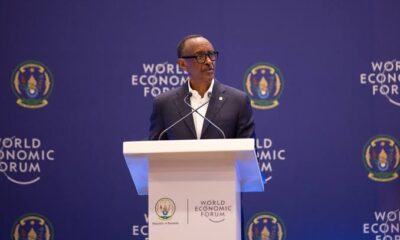

Video: How Rwanda is driving Ai revolution in Africa
In this video, the Managing Director of Rwanda’s Centre for the Fourth Industrial Revolution, Crystal Rugege, speaks on the country’s...


This Sudan war is too senseless; time we ended it, By Tee Ngugi
Why are the Sudanese Armed Forces (SAF) and the paramilitary Rapid Support Forces (RPF) engaged in a vicious struggle? It...
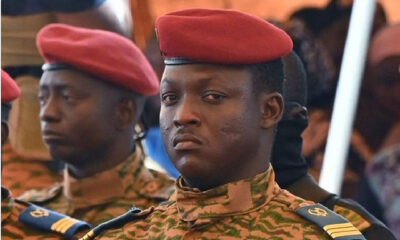

Burkina Faso investigating reports of northern killings
A government spokesman has revealed that Burkina Faso is looking into reports that 223 people were killed by the Burkinabe...


Nigeria: Bureaux De Change operators to harmonise retail FX market
Amidst the volatility around the Nigerian currency and its foreign exchange market, the Association of Bureaux De Change Operators in...
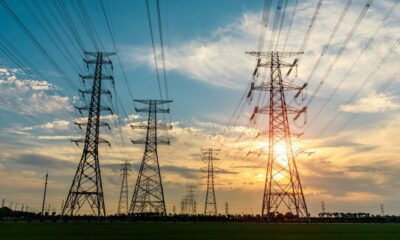

France willing to pay for Morocco’s 3GW power line to Western Sahara
Bruno Le Maire, the French finance minister, said on Friday that France was ready to help pay for a 3...
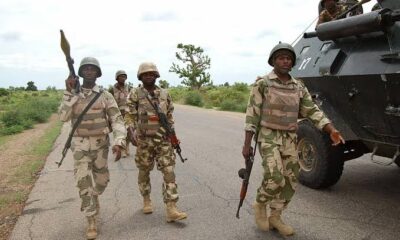

Nigerian troops neutralise 216 terrorists, arrest 332 in one week— Official
The Nigerian Army Defence Headquarters (DHQ) says troops from different operation theaters across the country neutralised 216 terrorists and arrested...
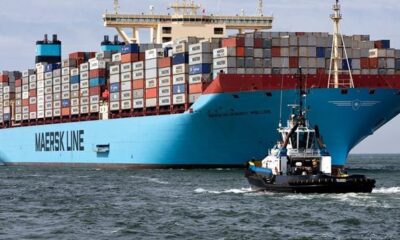

Nigeria loses $9.2 billion to foreign shipowners
A group of maritime experts has revealed that Nigeria loses $9.2bn a year to foreign shipping lines that carry goods...


Nigeria wants managers for proposed $10 billion diaspora fund
A tender paper shows that Nigeria is looking for fund managers for a $10 billion diaspora fund to bring in...


Al Ahly, Esperance to clash in CAF Champions League final
Two of Africa’s club giants, Egypt’s Al Ahly and Esperance of Tunisia, will do battle next month over two legs...
Trending
-

 Culture1 day ago
Culture1 day agoCollabo with Burna Boy enabled me buy house for my mum— Mozambican DJ Tarico
-

 Sports1 day ago
Sports1 day agoAl Ahly, Esperance to clash in CAF Champions League final
-

 Tech1 day ago
Tech1 day agoRepAir, Cella partner to launch carbon capture in Kenya
-
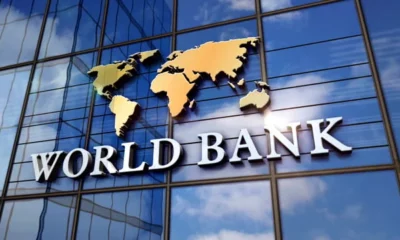
 VenturesNow1 day ago
VenturesNow1 day agoWorld Bank grants Malawi $57.6 million for food crisis

